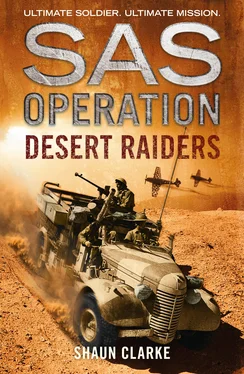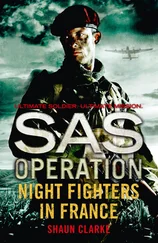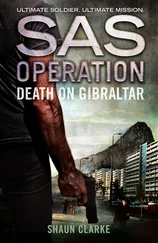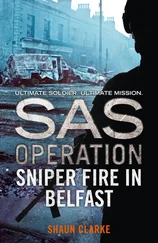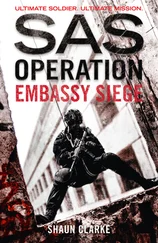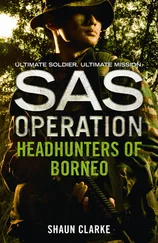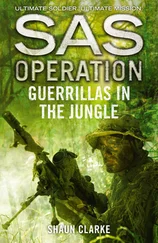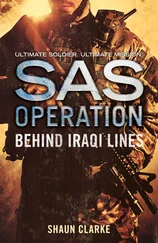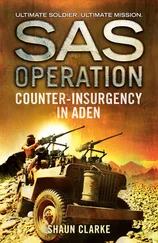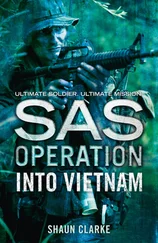This sartorial excess, Lieutenant Greaves had noticed, was complemented by a great deal of high spirits, including the indiscriminate firing of enemy rifles and pistols, exploding Thermos bombs, a lot of showing off in captured enemy vehicles, collecting wild dogs as vicious pets, bartering with Italian prisoners, betting on organized scorpion fights, hunting gazelles and other desert animals. There was a surprising indifference on the part of most officers to such undisciplined, and often dangerous, activities.
Lieutenant Greaves, formerly with the Scots Guards, now 8 Commando, was there for only two days as an observation officer from the Middle East Headquarters (MEHQ) in Cairo and due to fly back the following day from Tobruk. Though he understood the men’s high spirits, he did not approve of their behaviour. The scorpion fights, in particular, were a particularly vicious form of blood sport in which someone would dig out a circular shallow in the sand, pour petrol around the edge, set fire to it, then place two scorpions inside the ring of fire. The heat of the flames would drive the scorpions wild and they would viciously fight one another – so much so that often one of them would inadvertently sting itself fatally with its own tail. Another sport, equally unsavoury, was hunting desert gazelles, which the men would pursue in trucks, firing at the unfortunate creatures with their rifles. While the deaths of the animals had the undeniable merit of supplementing the men’s rations, Greaves viewed it as yet another barbaric activity spawned by a combination of victorious excitement, post-victory boredom, and a general lack of discipline.
Since the start of the British offensive in December, these men, including the 4th Indian Division, had resolutely pushed back the Italian forces in Egypt, stopping their advance at Sidi Barrani, taking Sollum, capturing Bardia with 40,000 Italian prisoners, and then Tobruk, and finally, after two months of relentless fighting, cutting off the main body of the Italian Army at Beda Fomm, with approximately 130,000 enemy troops captured. Now, in the closing days of March 1941, aware that advance elements of General Irwin Rommel’s Afrika Korps, including the 15th and 21st Panzer Divisions, had recently arrived in Tripoli and, supported by the Italian mechanized Ariete Division, were advancing across Cyrenaica, the men, still torn between high spirits and boredom, were in no mood for the necessary discipline of camp life.
Greaves would put this into his report when he returned to MEHQ, where the staff officers, known contemptuously as the ‘gabardine swine’ because their uniforms were made of that material and the Tommies thought they had an easy life, were anxiously biting their nails over the arrival in Tripoli of Rommel and his Afrika Korps.
Greaves could understand the Tommies’ contempt for the staff officers back in Cairo. Life there was certainly much easier and, in some cases, even luxurious. And yet, while he was supposed to be going back on an RAF Hudson transport the following day, he realized he would prefer to stay in the desert. A man who thought of himself first and foremost as a soldier, not as an officer, he was experiencing the frustration of the born soldier with no war to fight.
‘Looks like a sandstorm coming,’ he said to Major Gervase Reynolds, 3rd Hussars, one of the Regiments of the 7th Armoured Division.
‘I hope not,’ Reynolds replied, tugging distractedly at his handlebar moustache. ‘Bloody dreadful things. Make you feel you’re being buried alive and bugger up everything. Absolutely the worst thing about this damned place, which has many bad things.’
‘It certainly looks like a sandstorm,’ Greaves said as he squinted into the heat haze, surveying the distant horizon beyond El Agheila. The cloud was taking shape as an elongated band of darkness that spread higher and ever wider as it advanced across the flat, sun-scorched plain.
‘No wind,’ Major Reynolds observed. ‘Not the slightest breeze, Captain.’
Greaves sucked his forefinger and held it up. ‘Damn it, you’re right,’ he said. ‘No wind at all.’ Continuing to stare across the dazzling plain, he saw the cloud growing and still advancing at what he estimated was about thirty miles an hour. Then a series of black dots appeared in the sky above the horizon, distorted in the heat haze, but growing fatter by the second, racing forward above the duststorm until, in under half a minute, they took shape as winged birds.
Greaves realized they were not birds when he heard a familiar, distant rumbling sound.
‘JERRY!’ someone suddenly bawled behind him.
As the distant rumbling grew louder, the silhouetted birds became a squadron of German Ju-87 Stuka dive-bombers, all heading straight for the camp.
‘Damn it!’ Reynolds exclaimed. ‘He’s right! We’d better take cover.’
Even as Greaves recognized the enemy aircraft and, like Reynolds, hurled himself down behind the stone wall of a 25-pounder emplacement, the air-raid sirens wailed and the men in the laagers roared instructions at one another, frantically preparing their Bofors anti-aircraft guns. Jeeps and Bren-gun carriers roared into life and raced this way and that, churning up clouds of sand, as some of the men, arriving late, raced after them to jump aboard or get hauled up by their mates. The many troops in the tents poured out to grab weapons and helmets, then rushed to find cover in the defensive trenches around the perimeter. Others burst out of the latrines, some still pulling up their trousers.
Greaves and Reynolds hurled themselves down behind the nearest sangar wall as the first of the Stukas reached the camp, primitive, ungainly and with swastikas clearly marked on their fins, and peeled off to begin their dive-bombing.
The Bofors gun in the sangar exploded into action with a deafening roar, jolting dramatically as it belched fire and smoke, forcing Greaves to cover his ears with his hands as sand and gravel whipped up by the backblast swept hissing across him. The other anti-aircraft guns began roaring at the same time from all around the perimeter as the Stukas, which had been growling softly in an almost slumberous manner, screeched loudly, making their first attacks, their machine-guns firing as they descended. The bombs exploded nearby with a catastrophic roar and Greaves felt the earth shake beneath him as some Stukas screeched directly overhead before climbing above the pall of smoke. A lot of Tommies opened up with their .303 rifles and Mark 6 Webley pistols, adding their staccato snapping to the general bedlam.
‘Fat lot of good that’ll do!’ Greaves shouted to Reynolds, who was crouched beside him, removing his hands from his ears and shaking his head to remove the dust from his ears.
Reynolds glanced at the men firing rifles and pistols, then tweaked his walrus moustache and grinned. ‘It’ll do the men good. Make them feel less helpless. That’s a good sign, old boy.’
The Stukas were slow in flight but extremely fast when diving, the pilots fearlessly holding their course, ignoring exploding flak and streamers, and not levelling out until they were practically scraping the ground, when they would release their bombs, wobbling visibly as the load was dropped. Then they would straighten up and ascend steeply, back through the black clouds of flak and criss-crossing tracers, gaining velocity even as the bombs were exploding around the British positions.
‘Courageous buggers!’ Major Reynolds bawled. ‘Got to hand it to them, old boy. The Jerry pilots are admirable. I…’
He was cut short by a series of explosions that tore up the ground nearby, creating a mushroom of swirling soil, gravel and debris, including large rocks and sandbags from the wall of a nearby sangar. The screaming of an injured Tommy daggered through the general clamour but was swiftly blotted out by the even louder bellowing of the British six-pounders, Bren guns and 0.5-inch Browning machine-guns, and the captured Italian 75mm and 79mm guns. The gun positions were hurriedly being manned by infantrymen, signallers, orderlies and cooks, most of whom were stripped to the waist, gleaming with sweat, and were gradually being covered in a film of dust and sand as swirling smoke obscured them.
Читать дальше
